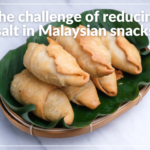According to Global Data, the majority of Asian consumers are moderating or reducing their sugar intake. That is especially true in countries such as Indonesia (89%), Philippines (89%), Malaysia (86%) and Thailand (85%), where sugar consumption is considerably high.¹ Just as for salt, sugar reduction is an ongoing global initiative by governments and World Health Organization (WHO). Due to the rise in obesity and diabetes, consumers are reducing their sugar intake to stay healthy. According to WHO, sugar consumption per day should not exceed ≤50g total sugar consumption. In addition, a new WHO guideline recommends adults and children to reduce their daily intake of free sugar to less than 10% of their total energy intake. A further reduction to below 5%, or roughly 25g (6 teaspoons) per day would provide additional health benefits.
When governements take part in efforts to reduce sugar consumption
New regulations are being implemented in the region, such as Healthy China 2023 initiative, Singapore Ministry of Health nutritional label, etc. Therefore, many consumers are looking more carefully at the labels. That is the reason why Asia Pacific companies are actively developing new products with sugar reduction claims.
According to Innova, there has been an increase of 15% in New Product Launches (NPLs) tracked with sugar reduction claims for the past 5 years.² Those claims go from “Reduced sugar (8% of the NPls) to “No Added Sugar (13%), “Low sugar” (15%) or even “Sugar free” (20%).
In Indonesia, 5,6% of the Food & Beverages launched tracked have Sugar Reduction claims.³ Meanwhile, new alternatives to sugar are invading the Asian market. According to Mordor Intelligence, this sugar substitute market is projected to grow at a CAGR of 3% during the forecast periode of 2020-2025.
Yeast extract: a natural solution to reduce sugar in your formulation
Even though consumers are looking for healthier choices, they are still accustomed to sweetness. Food manufacturers have a great challenge to overcome: delivering sweetness while reducing sugar in foods and beverages.
Our Biospringer Asia Pacific Culinary Center’s expertise in food formulation and yeast extracts can support the development of reduced-sugar foods. We can achieve sugar reduction up to 50%, without compromising taste. Our ranges offer various benefits that intensify sweetness or allow sugar reduction by bringing specific flavor notes. Yeast extract, a natural ingredient coming from fermentation, contributes to sugar reduction in many food applications such as sauces & dressings, dairy products, sweet products and more.
Achieve 20% sugar reduction in sweet soy sauce
Sweet soy sauce, also commonly known as “kecap manis”, is a thick, sweetened soy sauce that is a staple condiment in Indonesian cuisine. Recently, consumers are opting for healthy options, such as reduced sugar. Reducing sugar in sweet soy sauce presents several challenges, primarily because sugar plays a crucial role not only in providing sweetness but also in contributing to the texture, color and overall flavor profile of the sauce.
Here are some key challenges:
Maintaining the sweetness:
Sugar is a key component of sweet soy sauce, providing its characteristic sweet taste. Reducing sugar content while achieving the desired level of sweetness can be challenging.
Considering the texture and viscosity:
Sugar contributes to the viscosity and texture of sweet soy sauce. Reomving or reducing sugar can result in thinner or less viscous suace, which may affect the mouthfeel and overall quality.
Giving it a great flavor and color balance:
Sugar caramelizes during cooking process, giving sweet soy sauce its characteristic dark color and it also enhances the flavors of the sauce. Removing or reducing sugar may affect the sauce’s color as well as the overall flavor balance, making the sauce taste less complex or satisfying.
Being careful about consumers acceptance:
Consumer may be accustomed to the taste of the traditional sweet soy sauce and may resist changes in flavor and texture resulting from sugar reduction.
Finding a balance between healthiness and taste
Striking a balance between health-focused products and maintaining the overall taste profile is challenging for food manufacturers. Being identified as an integrated solution, yeast extract offers opportunities for taste improvement and can be easily incorporated into sauce applications. Here are the benefits of yeast extract in reduced sugar sweet soy sauce recipe:
Highlight and intensify overall taste profile:
Yeast extract is the perfect ingredient to build a complex, solid flavor base for a powerful taste. It helps to highlight and intensify the overall taste profile by minimizing the impact on mouthfeel and provides a more rounded and balanced body in reduced sugar sweet soy sauce recipe.
Support taste harmonization:
Natural yeast components offer great properties which contribute to a rich upfront profile while replacing sugar. In addition, it also helps to intensify and bring harmony to taste without compromising on the overall taste profile in sweet soy sauce.
Boost impact on long-lasting performance:
Naturally occuring nucleotides, peptides and amino acids in yeast extract are making it a complete, strong and natural source of umami. It works complimentary with different sweeteners by neutralizing the lingering off-notes to deliver a long-lasting natural umami and richness to the sweet soy sauce.
In conclusion, finding suitable and sustainable sources for alternative ingredients becomes a priority, as the shift towards healthier options may impact ingredient availability and sourcing practices. In navigating these challenges, food manufacturers must engage in innovation R&D efforts to develop formulations that not only meet health standards but also satisfy consumer expectations. Our Biospringer yeast extracts are the solution food manufacturers are looking for. The Springer® Signature range of yeast extracts is the perfect solution as it works synergistically with top flavoring for better taste complexity. It enriches brown notes in sweet applications while reducing sugar. In a sweet soy sauce recipe, for example, yeast extracts can reduce up to 20% sugar, while emphasizing the caramelized, long-lasting and soy notes.
¹ GlobalData, Consumer Survey, June 2021
² Innova Database, F&B Launches Tracked with Sugar Reduction Claims, APAC, 2018-2022
³ Innova Database, F&B launches tracked with Sugar Reduction claims, APAC, 2018-2022









